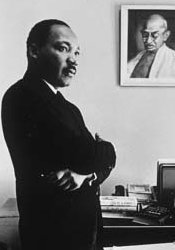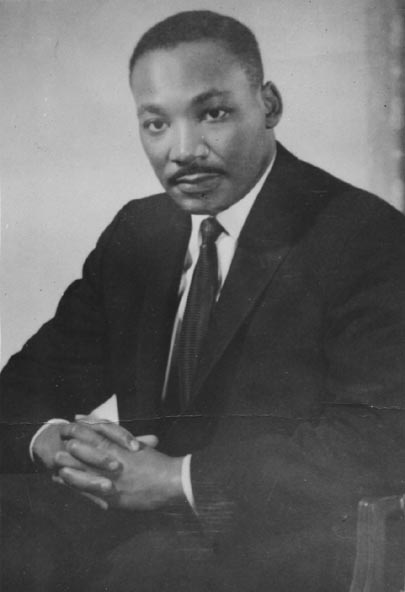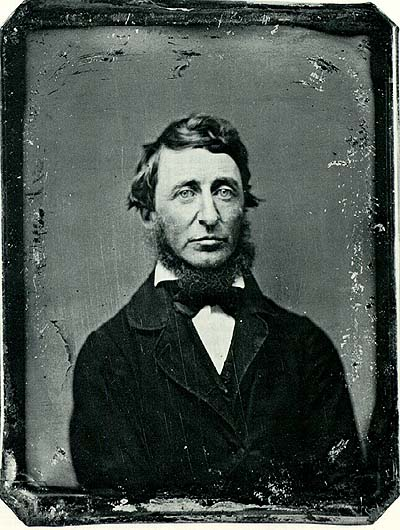|
|
Online Texts for Craig White's Literature Courses
|
|
|
Martin Luther King |
|
Martin Luther King, from “The Time for Freedom has Come.” 1961.
Much has been made of the willingness of these devotees of nonviolent social action to break the law. Paradoxically, although they have embraced Thoreau’s and Gandhi’s civil disobedience on a scale dwarfing any past experience in American history, they do respect law. They feel a moral responsibility to obey just laws. But they recognize that there are also unjust laws. . . .
[A
Testament of Hope: The Essential Writings of Martin Luther King, Jr.
Ed. James Melvin Washington.
San Francisco: Harper & Row, 1986.
160-166.
Martin Luther King, from Stride Toward Freedom: The Montgomery Story. 1961.
[regarding the Montgomery Bus Boycott begun by Rosa Parks]
As I thought further I came to see that what we were really doing was withdrawing our cooperation from an evil system, rather than merely withdrawing our economic support from the bus system. The bus company, being an external expression of the system, would naturally suffer, but the basic aim was to refuse to cooperate with evil. At this point I began to think about Thoreau’s Essay on Civil Disobedience. I remembered how, as a college student, I had been moved when I first read this work. I became convinced that what we were preparing to do in Montgomery was related to what Thoreau had expressed. We were simply saying to the white community, “We can no longer lend our cooperation to an evil system.” . . .
[A
Testament of Hope: The Essential Writings of Martin Luther King, Jr.
Ed. James Melvin Washington.
San Francisco: Harper & Row, 1986.
418-490.

Mahatma Gandhi on Henry David Thoreau
The statement that I had derived my idea of Civil Disobedience from the writings of Thoreau is wrong. The resistance to authority in South Africa was well advanced before I got the essay. . . . When I saw the title of Thoreau's great essay, I began to use his phrase to explain our struggle to the English readers. But I found that even "Civil Disobedience" failed to convey the full meaning of the struggle. I therefore adopted the phrase "Civil Resistance." (Letter to P. K. Rao, Servants of India Society, 10 September 1935)
We must voluntarily put up with the losses and inconveniences that arise from having to withdraw our support from a government that is ruling against our will. "Possession of power and riches is a crime under an unjust government, poverty in that case is a virtue," says Thoreau. (Young India, 16 June 1920).
[Both passages taken from The Essential Gandhi, ed. Louis Fischer, NY: Vintage, 1962.]
[Mohandas Gandhi (1869-1948), known as "Mahatma" or "Great Soul," developed Civil Resistance or Satyagraha to help India gain independence from the British Empire.]
![]()

—
[ ]



